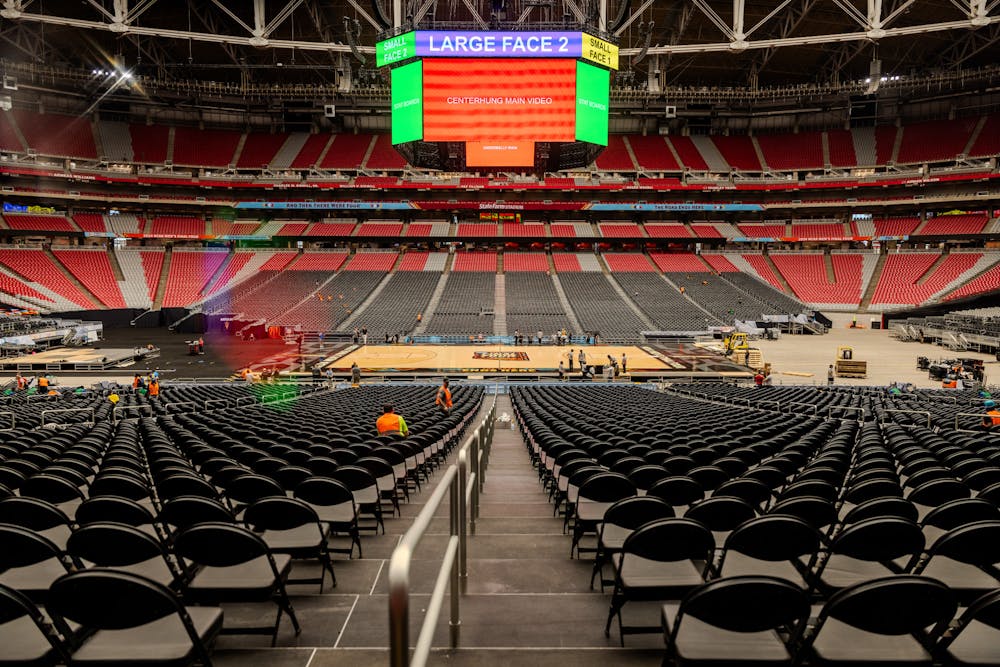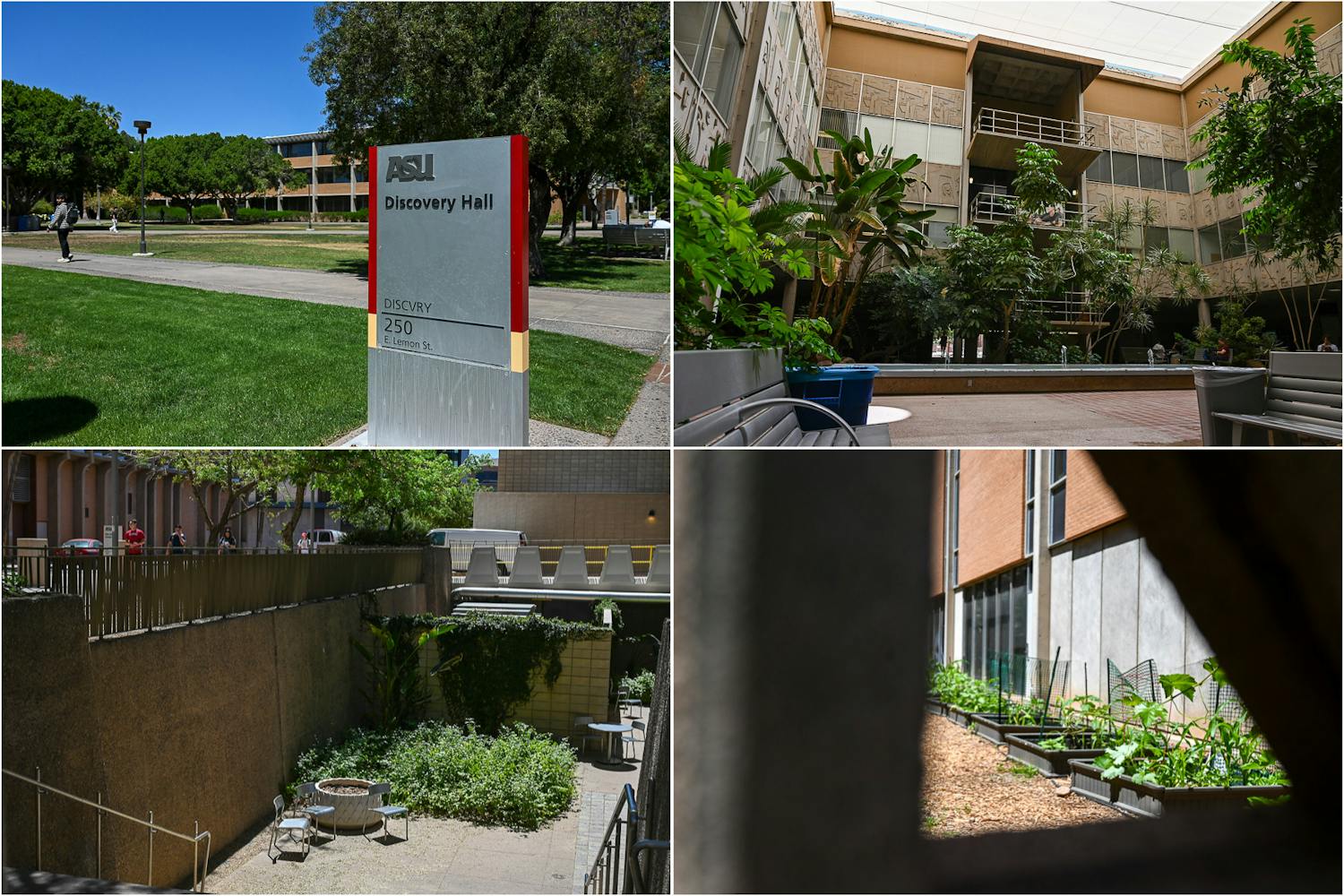The Final Four might be tipping off in Glendale, but the city will barely benefit from hosting the games.
Glendale has gotten used to hosting prestigious sporting events between a pair of Super Bowls, the 2017 Final Four and this year's trio of games. However, the West Valley city chips in far more resources than the crowds of 70,000-plus give back.
"From a pure economic benefit to the city of Glendale, we probably will end up spending more money than we would ever get back in sales tax or hotel tax revenue," Glendale city manager Kevin Phelps said. "So it's not for the city of Glendale. This is not a moneymaker by any stretch."
Glendale understands its obligations to the rest of the Valley. Phelps said that his city sees hosting games as part of its regional contribution to Arizona’s economic development. That contribution comes to roughly $1 million in public safety and transportation costs and a $500,000 donation to the Phoenix Local Organizing Committee, Phelps said.
"The PLOC works closely with all stakeholders in preparing to host the 2024 Men's Final Four," PLOC CEO Jay Parry said in a written statement. "There is strong support from the public, private and Native American sectors to showcase Arizona on the national and international stage through major events like the Men's Final Four."
A significant reason Glendale doesn't benefit is that visitors choose to stay in either Phoenix or Scottsdale. Both cities have a plethora of hotel rooms and homes for out-of-town fans. Old Town Scottsdale is popular for its restaurants and bars, whereas Phoenix is home to the Final Four Fan Fest and the March Madness Music Festival, which drew a combined crowd of over 185,000 in 2017.
READ MORE: How to access free student tickets to the Men's Final Four fan fest
"We're happy to do it, but we won't come anywhere close to that kind of revenue showing back up in terms of our tax collection," Phelps said.
Given their high daily spending, visitors choosing other cities is a blow to Glendale’s coffers. In 2017, 59,761 out-of-town visitors spent an average of $487.19 per day to generate over $121 million for Arizona, according to a W.P. Carey School of Business study. This time around, Phelps still expects most fans to spend most of their dollars away from Glendale.
The Final Four's seemingly small impact will not be equally felt even when visitors venture to the games. Downtown Glendale is over five miles from State Farm Stadium, while Arrowhead Towne Center, Glendale's biggest mall, is 10 miles away. Both house many shops and restaurants but won't be go-to options for fans coming in from across the country.
"Our downtown merchants probably won't see a big benefit," Phelps said. "But certainly, in and around Westgate, all of the 30-plus restaurants and all the hotels in the area are clearly going to see a bump in business."
READ MORE: How ASU is helping to host the Final Four
Still, Phelps and the rest of Glendale's civic employees have accepted their role in helping run the games. He realizes that his city's role in keeping State Farm Stadium up and running is a necessary step to making an event like the Final Four possible.
"We have a role in making sure that everything is being properly engineered and meets all the codes," Phelps said. "The stadium has the responsibility as the venue to meet the needs of the NCAA."
Glendale expects to work with multiple law enforcement agencies to provide security for the Final Four. The city will need the help of the Department of Homeland Security, the Arizona Department of Public Safety and municipal police departments.
Safely running the Final Four means Glendale must dedicate manpower to protecting game attendees and city residents simultaneously. The city will even use drones and aircraft to patrol the skies. It's a complicated business for a city manager, but Phelps believes he’s got it easier than most.
"What makes it really work here in the Valley is we have such great interagency cooperation between all the cities and the departments," Phelps said. "There's not a lot of turf protection in silos that you oftentimes will see in other parts of the country."
While the city won't benefit from this year's Final Four, Phelps believes Glendale will reap the rewards of hosting future events. Glendale had less than 1,000 hotel rooms after the 2015 Super Bowl and has nearly 1,900 rooms today. Phelps expects that figure to climb by another 1,500 rooms by the time Glendale hosts its next Super Bowl or Final Four.
"That will have a big impact because that means we're going to be able to capture more of the fans coming in that will stay here in the West Valley and stay here in Glendale," Phelps said.
Edited by Walker Smith, Sadie Buggle and Caera Learmonth.
Reach the reporter at jcbarron@asu.edu and follow @jackcbarron on X.
Like The State Press on Facebook and follow @statepress on X.
Jack is a senior studying sports journalism. This is his fourth semester with The State Press. He has also worked at Radio Sucesos and XPR Sport Experience in Argentina.




